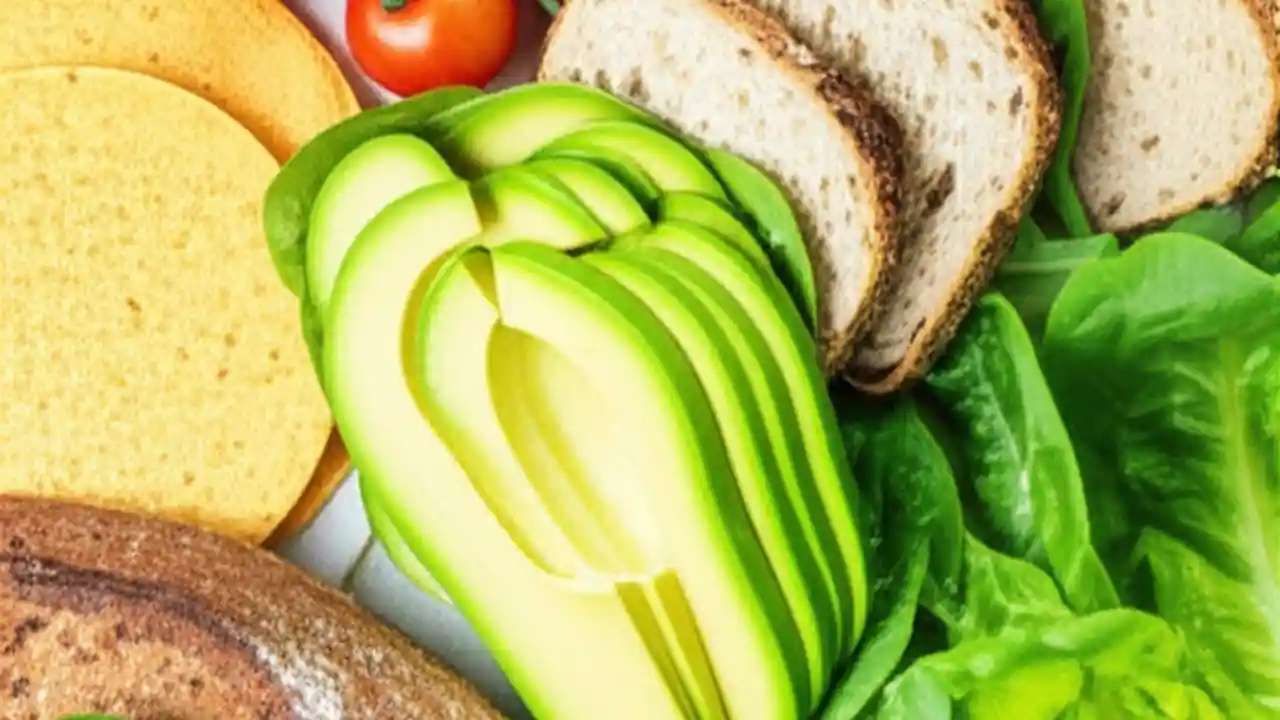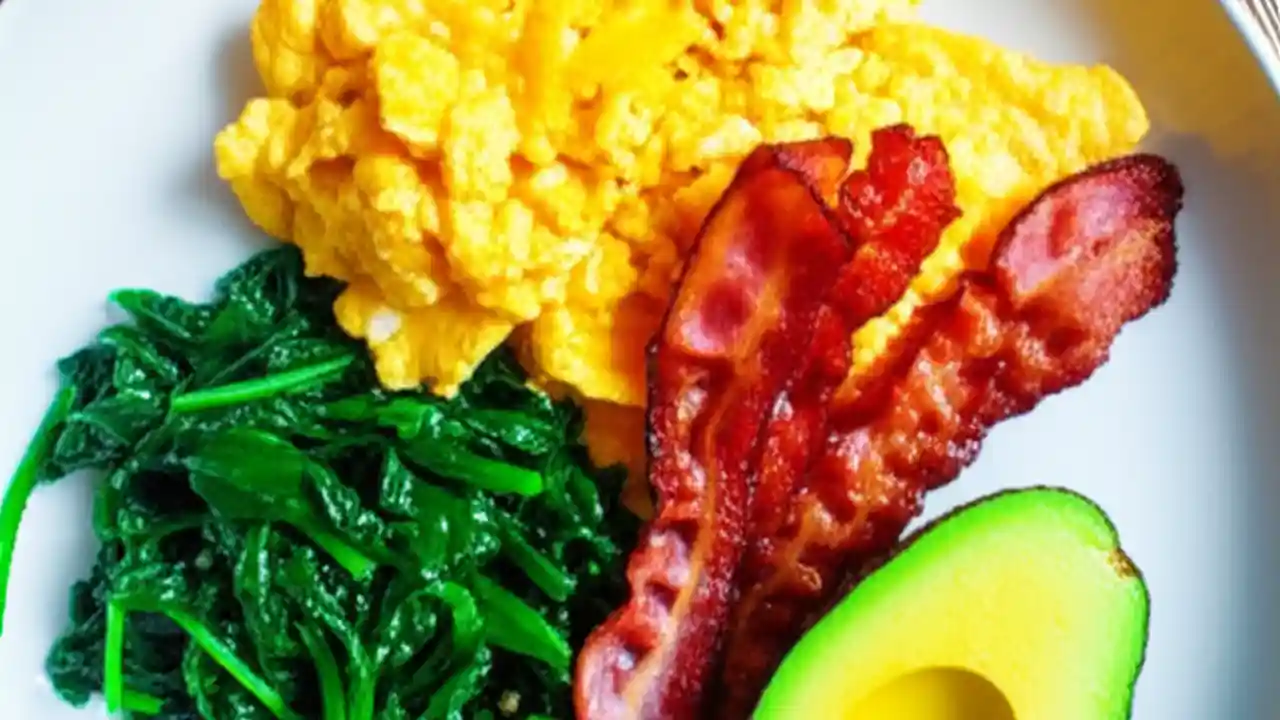Starting your day with a high-protein breakfast is one of the most effective strategies to boost energy, manage weight, and support overall health. From sustained satiety to improved focus and muscle repair, a protein-rich morning meal sets a powerful foundation for the entire day. This comprehensive guide will explore the science behind high-protein breakfasts, delve into diverse protein sources, provide actionable meal ideas, and address common questions, ensuring you have all the tools to optimize your morning routine for peak performance in 2025 and beyond.
Whether your goal is weight management, muscle gain, or simply maintaining stable energy levels, prioritizing protein at breakfast can make a significant difference. We’ll cover everything from quick grab-and-go options to hearty meal-prepped solutions, catering to various dietary needs and lifestyles. Get ready to transform your mornings and unlock a new level of well-being.
Table of Contents
The Science & Benefits of High-Protein Breakfasts
Why is protein so crucial for breakfast?
Protein is often called the “building block” nutrient, and for good reason. It’s essential for repairing tissues, making enzymes and hormones, and supporting a healthy immune system. At breakfast, its role is amplified. Unlike carbohydrates or fats, protein has a higher thermic effect of food (TEF), meaning your body expends more energy digesting it. This contributes to a greater calorie burn post-meal. Furthermore, protein significantly impacts satiety hormones like GLP-1 and cholecystokinin (CCK), helping you feel fuller for longer and reducing the likelihood of mid-morning cravings and overeating.
What are the primary benefits of starting your day with a protein-rich meal?
The advantages of a high-protein breakfast extend far beyond just feeling full. Here are some key benefits:
- Sustained Satiety: Protein slows down digestion, keeping you feeling full and satisfied, which can prevent mindless snacking and support weight management goals.
- Stable Blood Sugar: Unlike simple carbohydrates that cause rapid spikes and crashes, protein helps stabilize blood glucose levels, preventing energy slumps and improving focus throughout the morning.
- Muscle Preservation & Growth: Essential amino acids from protein are vital for muscle repair and synthesis, especially important after an overnight fast or morning workout.
- Enhanced Focus & Alertness: Stable blood sugar and the production of neurotransmitters like dopamine and norepinephrine (from protein’s amino acids) contribute to better cognitive function and alertness.
- Metabolic Boost: The higher thermic effect of protein means your body burns more calories during digestion, giving your metabolism a slight, but consistent, kickstart.
- Improved Nutrient Intake: Many protein-rich foods also come packed with essential vitamins and minerals, contributing to a more nutrient-dense diet overall.
How much protein should I aim for at breakfast?
While individual needs vary based on age, activity level, and goals, a general recommendation for a high-protein breakfast is typically between 20-30 grams. For individuals focused on weight loss or significant muscle building, aiming for 25-40 grams might be more beneficial. Spreading your protein intake throughout the day, starting with a substantial breakfast, helps optimize muscle protein synthesis and keeps hunger at bay.
Diverse Protein Sources & Meal Ideas
What are some excellent sources of protein for breakfast?
The beauty of high-protein breakfasts is the sheer variety of delicious and nutritious options available. You’re not just limited to eggs! Here’s a breakdown of top protein sources:
Animal-Based Proteins:
- Eggs: The classic choice, versatile, and complete protein. One large egg contains about 6 grams of protein.
- Greek Yogurt: Creamy, tangy, and packed with protein. A single serving can offer 15-20 grams. Look for plain, unsweetened varieties.
- Cottage Cheese: Another dairy powerhouse, excellent for spreading or mixing. Half a cup can provide 12-15 grams of protein.
- Lean Meats: Turkey bacon, chicken sausage, or lean ground beef can be great additions to savory breakfasts.
- Whey/Casein Protein Powder: A convenient way to boost protein in smoothies or oatmeal, typically 20-30 grams per scoop.
Plant-Based Proteins:
- Tofu/Tempeh: Excellent for scrambles or adding to stir-fries. Half a block of firm tofu can provide around 20 grams.
- Lentils/Beans: While often associated with lunch or dinner, cooked lentils or black beans can be surprisingly delicious in savory breakfast bowls or burritos.
- Nuts & Seeds: Almonds, walnuts, chia seeds, flax seeds, and hemp seeds add healthy fats, fiber, and a good protein boost. Two tablespoons of hemp seeds have about 10 grams of protein.
- Oats: While not a complete protein on their own, a cup of cooked oats provides about 5-6 grams and pairs well with nuts, seeds, or protein powder.
- Plant-Based Protein Powder: Pea, rice, or soy protein powders are great for smoothies, offering 20+ grams per serving.
What are some quick and easy high-protein breakfast ideas for busy mornings?
Life gets hectic, but that doesn’t mean sacrificing a nutritious start. Here are some grab-and-go or minimal-prep options:
- Greek Yogurt Parfait: Layer plain Greek yogurt with berries and a sprinkle of nuts or seeds. (Prep time: 2 minutes)
- Hard-Boiled Eggs & Fruit: Boil a batch of eggs on Sunday for quick access throughout the week. Pair with an apple or banana. (Prep time: 1 minute)
- Protein Smoothie: Blend protein powder, milk (dairy or non-dairy), spinach (you won’t taste it!), and a banana or berries. (Prep time: 3 minutes)
- Cottage Cheese & Tomato Toast: Spread cottage cheese on whole-grain toast, top with sliced tomatoes, salt, and pepper. (Prep time: 3 minutes)
- Overnight Oats with Protein: Combine rolled oats, chia seeds, protein powder, milk, and any desired toppings in a jar overnight. (Prep time: 5 minutes the night before)
Can I meal prep high-protein breakfasts to save time?
Absolutely! Meal prepping is a game-changer for consistent, healthy eating. Here are some meal prep-friendly high-protein breakfast ideas:
- Baked Egg Muffins: Whisk eggs with your favorite veggies (spinach, bell peppers, onions) and lean protein (diced ham, turkey sausage), pour into muffin tins, and bake. Store in the fridge for up to 4 days.
- Breakfast Burrito Bowls: Cook a batch of quinoa or brown rice, scramble eggs or tofu, and prepare some salsa and black beans. Portion into containers. Reheat and add avocado.
- Savory Oatmeal Jars: Portion dry oats, protein powder, and savory seasonings (like nutritional yeast, dried herbs) into jars. Add hot water or broth in the morning.
- Protein Pancake/Waffle Mix: Prepare a large batch of protein pancake or waffle batter, cook them, and freeze. Pop them in the toaster for a quick, warm breakfast.
Dietary Considerations & Common Questions
Are high-protein breakfasts suitable for weight loss?
Yes, unequivocally. High-protein breakfasts are incredibly effective for weight loss for several reasons. As mentioned, protein increases satiety, reducing overall calorie intake throughout the day. It also helps preserve lean muscle mass during calorie restriction, which is crucial because muscle burns more calories at rest than fat. By stabilizing blood sugar, protein prevents energy crashes and subsequent cravings for sugary, high-calorie foods. Many studies support the idea that higher protein intake, especially at breakfast, leads to greater weight loss and better body composition.
What about high-protein breakfasts for vegetarians or vegans?
Plant-based eaters have numerous fantastic options for high-protein breakfasts. It simply requires a little more intentional planning to ensure a complete amino acid profile. Here are some top choices:
Vegetarian:
- Greek yogurt with nuts and seeds
- Cottage cheese with fruit
- Egg scrambles with vegetables
- Tofu or tempeh scrambles
- Protein pancakes made with eggs and plant-based protein powder
Vegan:
- Tofu scramble with nutritional yeast (for a cheesy flavor)
- Tempeh bacon or sausage patties
- Overnight oats with plant-based protein powder, chia seeds, and hemp seeds
- Lentil or black bean breakfast burritos
- Smoothies with pea, rice, or soy protein powder and nut butter
- Edamame pods (shelled) added to a savory breakfast bowl
Can a high-protein breakfast be unhealthy? What are common pitfalls to avoid?
While generally beneficial, not all high-protein breakfasts are created equal. It’s easy to inadvertently turn a healthy meal into something less optimal. Here are common pitfalls to avoid:
| Pitfall | Description & Why to Avoid | Healthier Alternative |
|---|---|---|
| **Excessive Processed Meats** | Sausage patties, bacon, and cured ham are often high in sodium, unhealthy fats, and nitrates. Regular consumption can negatively impact cardiovascular health. | Lean turkey bacon, chicken sausage, or plant-based protein sources like beans or tofu. |
| **Adding Sugary Syrups/Toppings** | Maple syrup, sugary jams, and sweetened yogurts quickly add empty calories and cause blood sugar spikes, negating protein’s benefits. | Fresh fruit, a touch of pure maple syrup (in moderation), or a sprinkle of cinnamon. Use plain, unsweetened Greek yogurt. |
| **Lack of Fiber/Veggies** | Focusing solely on protein without fiber can lead to digestive issues and misses out on crucial vitamins and antioxidants. | Incorporate spinach, bell peppers, mushrooms into scrambles; add berries or whole grains to yogurt/oatmeal. |
| **Over-reliance on Protein Bars/Shakes** | While convenient, many bars/shakes are highly processed, contain artificial sweeteners, and lack whole food nutrients. | Prioritize whole food protein sources. Use protein powder as a supplement, not a replacement for real meals. |
| **Excessive Portion Sizes** | Even healthy foods can lead to weight gain if consumed in overly large portions. | Be mindful of portion sizes. Listen to your body’s hunger and fullness cues. |
Focus on whole, minimally processed protein sources, pair them with fiber-rich fruits, vegetables, and whole grains, and limit added sugars and unhealthy fats for the best results.
Conclusion
Embracing high-protein breakfasts is a powerful, yet simple, change that can profoundly impact your health, energy, and overall well-being. By prioritizing quality protein sources at the start of your day, you unlock sustained energy, better weight management, enhanced focus, and improved muscle health. Make 2025 the year you truly master your morning nutrition. Experiment with different options, find what works best for your taste and lifestyle, and enjoy the tangible benefits. Share this guide with friends and family who could also benefit from a protein-powered start!












